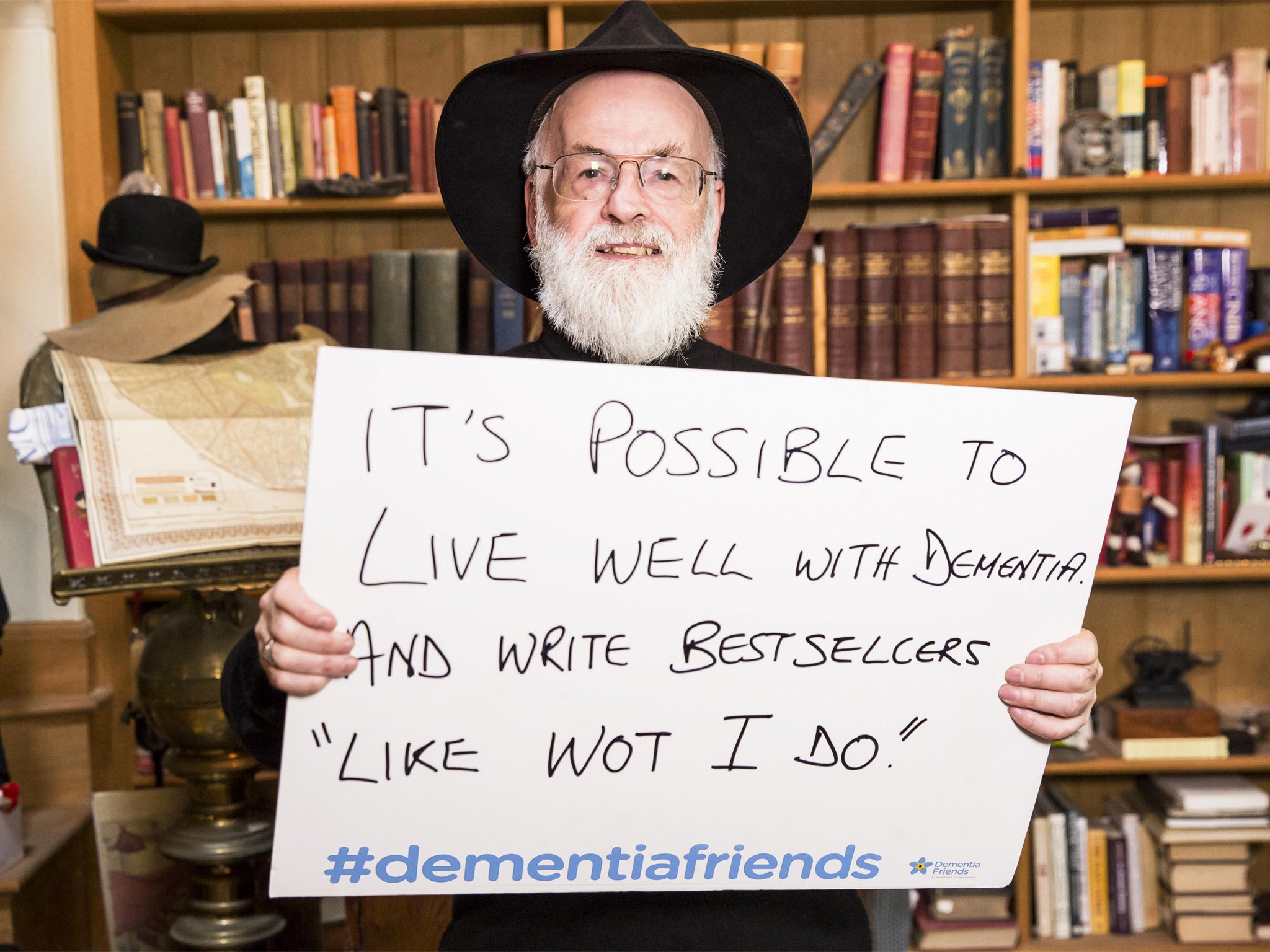Terry Pratchett helped countless people by changing the way the world sees Alzheimer’s Disease
He was the truest of champions for people with the condition

Your support helps us to tell the story
From reproductive rights to climate change to Big Tech, The Independent is on the ground when the story is developing. Whether it's investigating the financials of Elon Musk's pro-Trump PAC or producing our latest documentary, 'The A Word', which shines a light on the American women fighting for reproductive rights, we know how important it is to parse out the facts from the messaging.
At such a critical moment in US history, we need reporters on the ground. Your donation allows us to keep sending journalists to speak to both sides of the story.
The Independent is trusted by Americans across the entire political spectrum. And unlike many other quality news outlets, we choose not to lock Americans out of our reporting and analysis with paywalls. We believe quality journalism should be available to everyone, paid for by those who can afford it.
Your support makes all the difference.Terry Pratchett once said that “the first step is to talk openly about dementia because it’s a fact, well enshrined in folklore, that if we are to kill the demon then first we have to say its name. Once we have recognised the demon, without secrecy or shame, we can find its weaknesses.”
Terry faced that demon fearlessly. Once upon a time, Alzheimer’s was a disease that didn’t get talked about. Thanks to Terry, this is no longer the case.
During the many times Terry supported Alzheimer’s Society, publicly and privately, I was struck by his passion, resilience and courage to fight and kill the demon of dementia. When thanked for his work, he’d simply smile and shake his head modestly, insisting it was nothing. Never dwelling on his own dementia, he used his voice to shout out for others when they could not.
Since his diagnosis in late 2007 to his death, his passion for making people aware of dementia fundamentally changed the way dementia is seen and understood. Terry had a rare form of dementia called Posterior Cortical Atrophy or PCA. It affected his vision and coordination, but not his determination to be the truest of champions for people with the condition.
In 2009 he made a poignant film that was broadcast on BBC2 called Terry Pratchett: Living with Alzheimer's, sharing with the world, and his millions of fans, his private struggle with the condition. This took great courage but Terry was a fearless advocate.
He was not afraid of shouting from the rooftops about the absurdity of how little funding dementia research receives, and fighting for good quality dementia care. He took on politicians making sure they do more to improve life for dementia patients and fund research into dementia drugs. He spoke out about the need for funding and research on many other numerous occasions, notably on Newsnight in December 2013, during the first ever G8 summit on dementia.
When the Alzheimer’s Society launched the Dementia Friends initiative to tackle stigma, Terry was quick to offer his support. Despite failing health, he graced our television screens last year with a host of other celebrities urging the general public to find out more about a condition which affects as many as 850,000 people in the UK.
Our deepest condolences go to his wife, Lyn, his daughter, Rhianna, and his friend and business manager, Rob Wilkins, who accompanied and supported Sir Terry on all his charitable work.
Terry helped to bring dementia out of the shadows and into the light.
Jeremy Hughes is Chief Executive of Alzheimer’s Society
Join our commenting forum
Join thought-provoking conversations, follow other Independent readers and see their replies
Comments